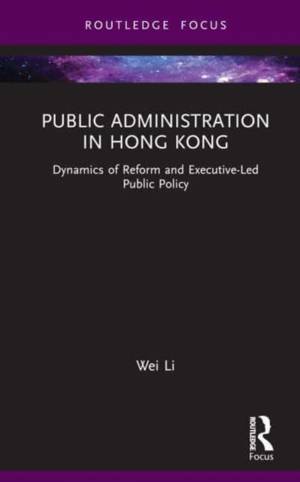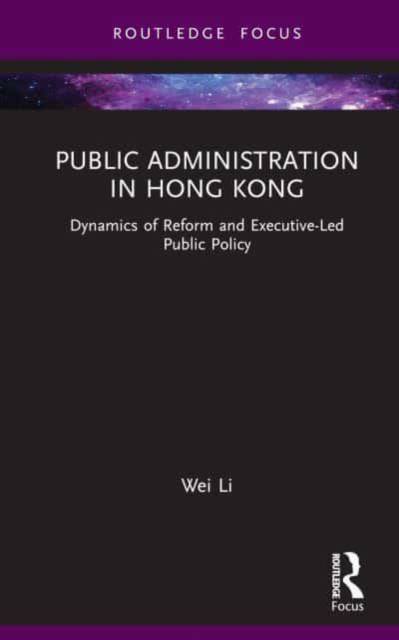
- Afhalen na 1 uur in een winkel met voorraad
- Gratis thuislevering in België vanaf € 30
- Ruim aanbod met 7 miljoen producten
- Afhalen na 1 uur in een winkel met voorraad
- Gratis thuislevering in België vanaf € 30
- Ruim aanbod met 7 miljoen producten
Omschrijving
This book investigates the case of Hong Kong Special Administrative Region (SAR) of People's Republic of China, mapping the changing patterns of political-administrative relations affected by the sovereignty change and structural reforms. It identifies the conditions that account for the varied political-administrative relations resulting from these changes, and develops an analytical framework that integrates and adapts theories and models from Western contexts to explain varied political-administrative relations in Hong Kong policymaking.
The book tests its hypotheses through a qualitative comparative analysis of 18 cases occurring during the period of 1997-2012. It also conducts a comparative case analysis, which identified alternative causal conditions that were missing in the original framework. The book concludes that civil servants no longer dominate policymaking in Hong Kong after the regime change and structural reforms. While senior civil servants have sustained influence over policymaking processes through codified rules and political appointment, some of them have adapted to the changes in political environment that require more proactive policy styles and more hierarchical loyalty to the Central People's Government of China than before.
The first-hand interview materials presented in the book provide insights about internal political-administrative dynamics rarely accessible from the public domain. These insights provide inside knowledge of the actors, structure and processes of local policymaking in a context of post-colonial transition, and will be of interest to public administration scholars.
Specificaties
Betrokkenen
- Auteur(s):
- Uitgeverij:
Inhoud
- Aantal bladzijden:
- 108
- Taal:
- Engels
- Reeks:
Eigenschappen
- Productcode (EAN):
- 9781032049182
- Verschijningsdatum:
- 30/06/2023
- Uitvoering:
- Hardcover
- Formaat:
- Genaaid
- Afmetingen:
- 140 mm x 216 mm
- Gewicht:
- 299 g

Alleen bij Standaard Boekhandel
Beoordelingen
We publiceren alleen reviews die voldoen aan de voorwaarden voor reviews. Bekijk onze voorwaarden voor reviews.











